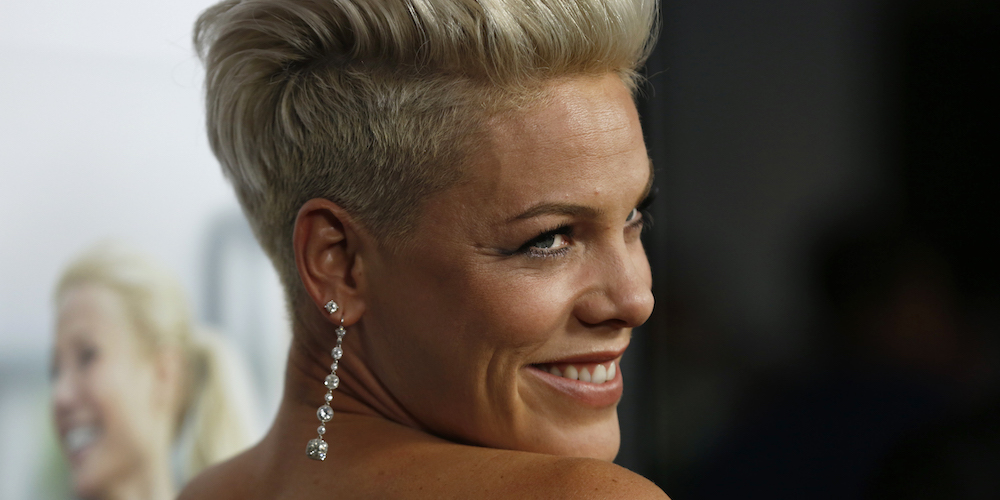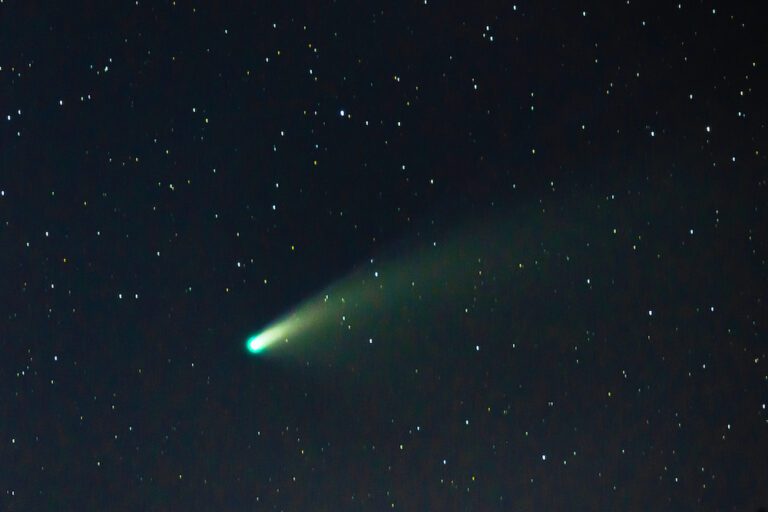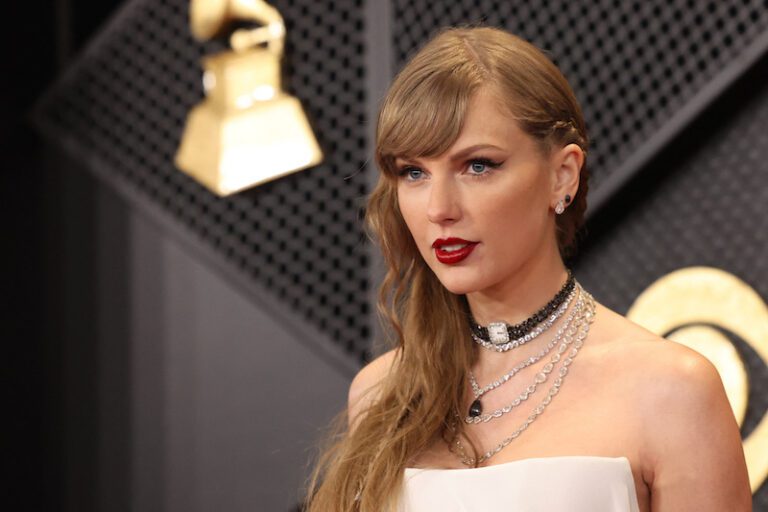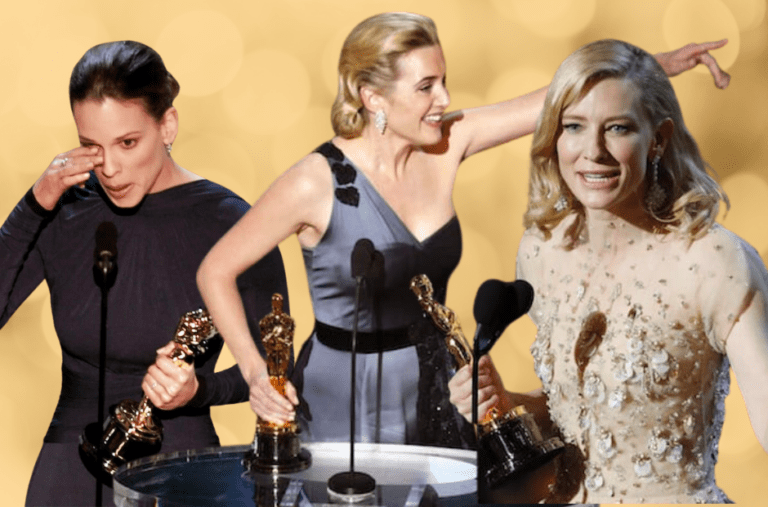The evolution of a music icon goes through many different phases and turns, but where Pink is concerned, resilience, relevance and originality have been constants from day one. Add in a dose of rebellion and there are the components of a music, style and social icon who surpasses her peers with breathless ease… and only the occasional expletive.
She’s shifted over 40 million albums, an even greater quantity of singles, and has a cavalry of loyal patrons the world over. With every comeback she proves herself even more relevant, perforating the music industry’s relentless fanfaronade in offering an authentic voice for her generation. And yet, even pop superstar Pink admits her nerves sometimes get the better of her.
“I still get very nervous for every new thing I do, everything new thing that comes out,” she states, with a punchiness that belies the meaning of her words. “Albums, tours, songs… am I going to suck? Will I sound even more like Alvin and the Chipmunks?” she questions, referencing a raft of her tracks that have been given a high-pitched revision, before pausing, adding, “I won’t ever get over that and I probably don’t want to if I’m honest.”
Such searing honesty has become the trademark of the fiery, feisty 38-year-old who never shies away from the deepest, most profound truths. For the Pennsylvanian – real name Alecia Beth Moore – pain, angst and frustration are only ever the fuel for what become touching ballads, defiant and rousing rock jams and anger-laden, anthemic dance hits. This ‘warts and all’ approach seems to be ruthlessly effective – 17 years after her breakthrough with the R’n’B inspired Can’t Take Me Home, Pink is still shifting millions of records, still selling out stadiums and, in this time where female empowerment is more valued than ever, she’s still inspiring young women all over the globe.
Beautiful Trauma
In 2017, her seventh studio album, Beautiful Trauma, became the world’s third best-selling of the year and spawned the track What About Us which flew straight to the top of the Australian charts. Melodic, thought-provoking and backed by an irrepressible dance beat, it was clear from the very early bars that not only was Pink back, but in the finest artistic form of her life. And less than a year on, almost a quarter of a billion plays of the track on YouTube seem to certify that faith.
But such feats are not straightforward or normal in an industry discovering all the time new levels of superficiality, particularly given the break between Beautiful Trauma and her last record, 2012’s The Truth About Love. “Five, six years… that’s a long time to be away, or at least, that’s what I keep getting told,” says the star, letting loose that trademark raspy chuckle. “I don’t think it’s too long but apparently it’s a lifetime.”
In all fairness, six years in real time equates to a generation in the music world, where trends shift and fluctuate so rapidly that no sooner has an artist acclimatised to their new-found fame, is it being snatched away from them. What’s more, the period between 2012 and now has arguably been one of the most turbulent and unsettling both within the industry and society at large. Streaming has revolutionised the way we buy and listen to music, the political landscape has highlighted enormous rifts in people’s attitudes and expectations across multiple continents, and last year’s #MeToo movement has brought to light unsettling truths about gender equality.
For an artist so politically engaged – her 2006 collaboration with the Indigo Girls titled Dear Mr President was an open letter to George W. Bush criticising a number of White House policies and principles, including the Iraq war and the No Child Left Behind Act – it is par for the course that Pink would have plenty to say on the current social climate in her homeland. Exhibit one: What About Us, a track that comes across as a straight-up ballad about a relationship, but in lines such as, “We are children that need to be loved… But man, you fooled us, enough is enough,” allude to a greater, societal picture of disillusionment and disappointment.
Such zeitgeisty musings suggest that the powerhouse vocalist has kept her finger firmly on the pulse, and Pink readily admits to staying close to her guitar during the five-year hiatus. “I never stopped writing, I never stop writing. I had 50 songs for this album and I had to dump most, which hurt me bad.
“Music isn’t a choice, and a lot of artists will say the same. It’s a habit that I couldn’t ever shake; it’s great therapy!”
On Motherhood
Having been in the public eye since her early twenties, the singer took time away to focus on her two children – Willow, six, and 18-month-old Jameson. And it is this seismic personal shift which has influenced Pink’s new artistic phase the most. “They always say your first album takes 20 years to make, while the second you can turn in perhaps six months,” explains Pink. “This is my seventh, but it feels like my first, because of becoming a mum and embracing parenthood, and that has been a massive thing for me.
“Everything changes when you have kids – I made another human being, and now it’s the question of whether I can stay relevant, and I hope I can. I think I can. It’s reflective of what I’m feeling in my life in that chapter.”
Make no mistake, parenthood suits Pink, and in moving on to this next life phase the artist is threatening to achieve a rare thing in the music industry – namely remaining 100% the fearsome, outspoken and original ambassador for change while proving to be a most devoted and emotionally intelligent mother. She is protective of her brood, naturally, yet a softer and more open side of the singer has been revealed through breastfeeding selfies, playful family red carpet shots and the sheer warmth and joy she exudes when talking about her children. In short, she is happier.
“I think motherhood has made me a lot more fun, and undeniably less serious,” she says, adding thoughtfully, “I was always fun, but then I went through a really dark period where there was kind of a cloud there. Now, I’m really goofy, and silly, and all about the laughs. There are definitely flickers of darkness from time to time, but that no longer defines me… far from it.”
Part of Pink’s persona has always been her defiance – an unyielding ownership of self in an era when female popstars were expected to be pliable and obedient. Born in Doylestown, Pennsylvania, to Judy and Jim Moore, the singer thrived on a rebellious streak which was only compounded by her parents’ divorce when she was 10. Already smoking by then, narcotics quickly took over as her vice of choice, and by 15 her mother was so distraught at her daughter’s behaviour she employed the services of a therapist, before finally throwing her out.
In high school though, Pink joined her first band, Middleground, and once they went their own ways, she began writing solo material, eventually performing under the moniker Pink – inspired by Mr Pink in Quentin Tarantino’s Reservoir Dogs. Soon she was part of another band, an all-female line-up called Basic Instinct, before creating Choice, the group that would land her a debut record deal with LaFace Records in Atlanta, Georgia, under the tutelage of famed producer L.A. Reid. While recording the R’n’B trio’s debut record however, it was already plainly evident who the real talent in the group was, and Reid soon encouraged the gutsy, pink-haired songstress to pursue a solo career.
When Pink’s debut record, Can’t Take Me Home, was released in the February of 2000 it became an instant hit, offering the star instant global recognition. Despite her lack of artistic attachment to the record, she still looks back on the experience with sage fondness. “I won’t sit here and say, ‘I hate that album’. I think it’s great, I still listen to those songs, they mean a lot to me, but they weren’t my songs, they weren’t what I had to say, and they feel less important to me than my own stuff,” she says frankly.
“It was an amazing experience, I learned a lot and that’s what I teach my kids… that everything we do, no matter what the outcome – success, failure, what we intended or not – is a win, because it adds to life. And we’re always learning, I never stop learning.”
Regardless, by the time of her second release, Missundaztood, Pink had already begun pulling away from the commercialised sound of her debut and towards what she considered to be her own authentic voice. The decision to rally against the music bigwigs was courageous to say the least. After all, rock bands rebel, not popstars, particularly when the charts of that period were ruled by the likes of Britney Spears and Christina Aguilera, both then the epitome of sugar-coated, commercial compliancy. It is not a stretch to say that without Pink’s bloody-minded spirit and swagger, neither Spears, nor Aguilera, nor the sea of outspoken female singers who followed, would have ever had the chance to stand up and find their own true voices.
An empowering voice
Wind forward to the present day and the crusade of empowering others continues unabated. At the start of this year Pink released a simple but powerful video for her single Wild Hearts Can’t be Broken. Eschewing her usual theatrics, the video is shot in black and white and features a touching cameo from her daughter. Originally written for the film Suffragette, underlying the movement to give women the right to vote, the singer chose to use the launch of the video to promote UNICEF, for which she is an ambassador. “In honour of girls and women all over the world standing up for themselves, I am going to be making a donation in all of your names to this wonderful organisation, and I encourage you to do the same if the spirit moves you.”
Yet arguably Pink’s most socially profound moment came during last year’s MTV Video Music Awards when she accepted the Video Vanguard Award. In her acceptance speech, she recounted a conversation she’d recently had with her daughter in which Willow had referred to herself as “the ugliest girl I know” who “looked like a boy with long hair”. Horrified by her six-year-old’s assessment, Pink prepared a PowerPoint presentation of androgynous rock stars and artists that live their truth, such as David Bowie, Prince and Annie Lennox. She then recounted her own experience as a woman revealing the times she had been called too loud, too masculine, too opinionated.
Adding finally: “And I said to her, ‘Do you see me growing my hair?’ She said, ‘No, mama.’ I said, ‘Do you see me changing my body?’ ‘No, mama.’ ‘Do you see me changing the way I present myself to the world?’ ‘No, mama.’ ‘Do you see me selling out arenas all over the world?’ ‘Yes, Mama.’ ‘Okay! So, baby girl, we don’t change. We take the gravel and the shell, and we make a pearl. And we help other people to change so they can see more kinds of beauty’.”
“I made that speech solely for her because I wanted her to feel better; there was no indication it would hit so many people.
“In reflection, that to me is awesome and sad in equal measure. It saddens me that so many would feel this way – we should not be feeling this way, yet it’s the reality of the world and society,” she says. “But a lot of people reached out to me, saying how much the speech helped them, helped their brother or sister, helped their child to realise their worth, to realise who they are. That stays with me.”
Having lived the a typically frenetic and fast-paced lifestyle in Los Angeles, Pink and her husband, motocross racer Carey Hart, have decided to raise their family in a ‘cool farm town’ where their friends are teachers and writers rather than rock stars and agents. It is both touching and strange to imagine the unconventional couple attending PTA meetings and bake sales, but Pink admits that for the first time in her life she has found stability and solidarity in a group of fellow hardworking women, and professes that that no amount of wealth or fame can either replace the satisfaction of parenthood, nor ease the guilt of the working mother.
“It’s a constant battle. I want my kids to see their mama following her passions and dreams, but every decision, every choice, cuts the wind to something else and that’s hard to deal with, especially for a helicopter parent like me, who never really took off. I’m always there, lurking,” she says dryly. “I always feel like I can be a better mum, every single day, but I know all parents have that same feeling, that same guilt, so you do the best you can and live with it.”
However, if there’s a silver lining to being one of the world’s biggest pop stars, it’s that Pink is able to take both her kids and husband to the office… the workspace being packed-out arenas around the globe. Having raised the curtain in Phoenix on March 1, the Beautiful Trauma Tour is throwing sound and social commentary onto 127 separate audiences across the US, Canada, Australia and New Zealand, reaching Perth on July 3, where follows almost three months and 41 dates in the southern hemisphere. Expect a bevy of back catalogue hits, a flurry of theatrics, tender moments and, inevitably, a range of breath-taking aerial acrobatics. On that note, what is it that makes an artist who has such outstanding vocal ability and an iconic playlist want to add such a complicated, daring and dangerous performance aspect to her live shows?
Credit: Interview Hub







